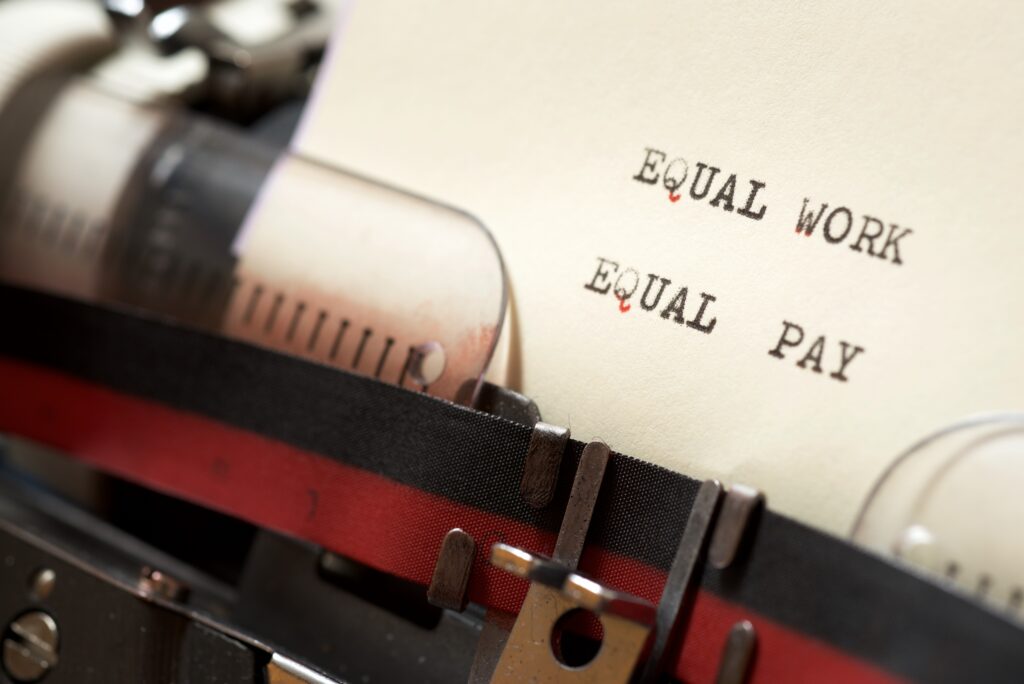Dollar for Dollar - Closing the Gender Pay Gap through Pay Equity and Pay Transparency

On Tuesday, March 15 the nation celebrated Equal Pay Day where the latest numbers indicate that women are paid 83 cents for every dollar earned by their white male colleagues. If it seemed like the date was sooner than last year, it was—last year it fell on March 24. Does that mean we are closing the gender pay gap? Not so fast. According to the National Women’s Law Center, the data is misleading and could be due to the fact that millions of women left the workforce during the pandemic. Those that remained were more likely to be in a higher compensation bracket, thereby artificially raising the average.
Equal pay laws such as New Jersey’s ‘Diane B. Allen Equal Pay Act’ outlaw pay discrimination based on protected classes such gender, race, religion, sexual orientation and gender identity. However they do not always promote equity as employers may still take into account other factors such as education, experience and seniority when determining wages for employees doing the same job. They also do not take into account pay disparities in a labor market that continues to be segregated by sex.
Pay Equity (per pay-equity.org) recognizes the need to reevaluate compensation of female-dominated jobs. “Nurses, librarians, government employees, and clerical workers have assessed their skills and the requirements of their jobs and have argued that their jobs are underpaid relative to jobs of comparable worth—that is, jobs requiring similar levels of skill, effort, and responsibility and similar working conditions—that are held mainly by men.”
Pay discrimination often begins during the hiring process. Common practices such as asking for salary history and salary expectation have been shown to work in favor of the employers and lead to pay disparity for women and minorities. Six states and New York City have passed laws that prohibit employers from requesting applicants’ salary history and require that companies provide a salary range to applicants. On St. Paddy’s day, here’s a tip of the hat to Jersey City, which became the first city in New Jersey to introduce a pay transparency ordinance last week. Its supporters contend that Jersey City needs to stay competitive in hiring practices with NYC and that passing the ordinance would keep the field level. It would require all businesses with four or more employees to include a salary range and/or hourly wage and benefits along with a job posting. It’s time for our State Legislature to address pay transparency through statute to create a level playing field for all New Jersey women.
It is estimated that women earn $407,760 less than their male counterparts over the course of a 40-year career. This gap is unacceptable at all times but especially when we’re in an economic crisis like this one. In the fight for pay equity, we must look beyond equal pay for equal work, we must all adopt a call for equal pay for work of equal value.
Anjali Mehrotra is an unapologetic feminist and proponent of gender parity in all aspects of social, economic and political life. She is President of the New Jersey Chapter of National Organization for Women and a member of the American Association of University Women. Both organizations are leaders in the fight for pay equity.






Pay gap definitely exists. 20 + years in , and male co workers with the same title that just started 5 years ago makes 8k more. I brought it up to management and I'm told this this job isn't worth that much $, only that job is. It's the same position at a different location an hour away. got in an argument with the manager and he wrote me up. So , my job is only worth less money when I'm doing it. Everyone who covers for me when I am out make more money. State of NJ won't help you...keep passing more feel good laws in NJ that no one enforces and the only way to get your worth is to hire a lawyer, and since we're so underpaid, we cannot afford that luxury.